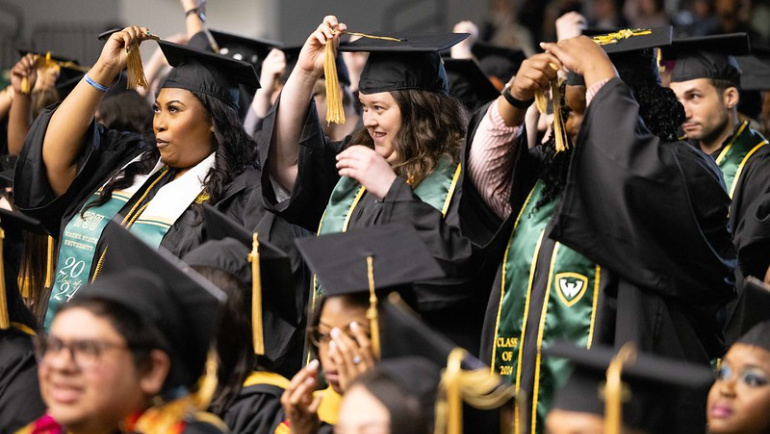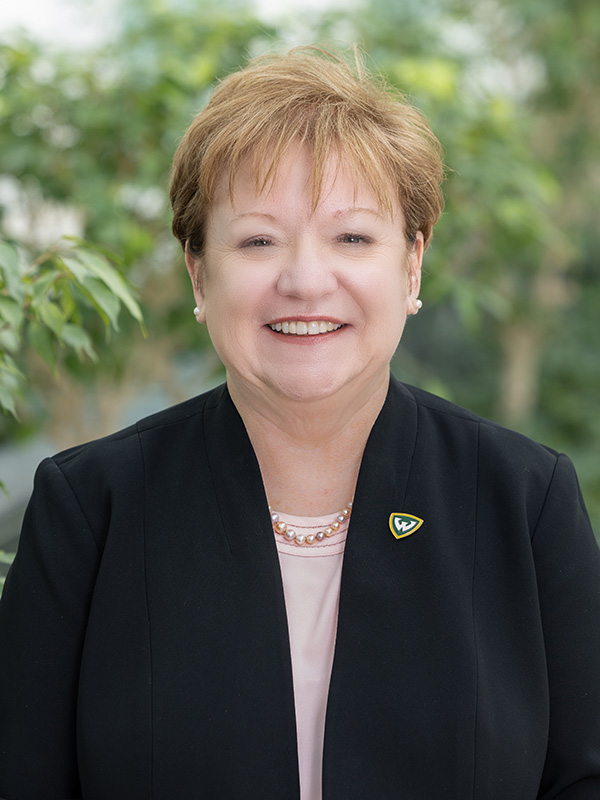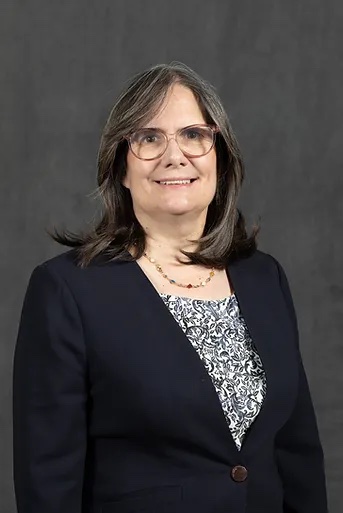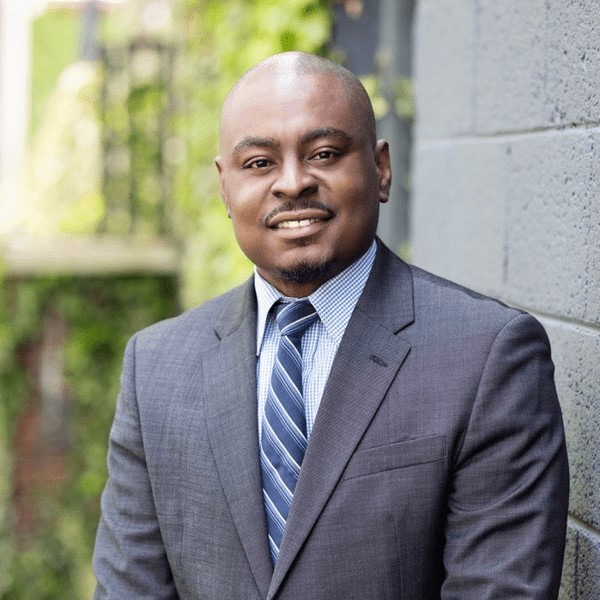
Earning a college degree transforms lives, creates generational change, and fuels economic growth and innovation. In addition, there are significant economic, personal and social benefits associated with earning a degree, including higher salaries and job security, better health, improved relationships, and increased community involvement.
Monica Brockmeyer, Ph.D., senior research fellow at the Center for Urban Studies, and Darryl Gardner, Ph.D., vice provost for student success, support and engagement, have witnessed this impact firsthand through their work on Wayne State University’s student success initiatives.

Provost and Senior Vice President for Academic Affairs
Now, the duo has teamed up to publish a paper, “Assessing the value of post-secondary education in Michigan: An equity-focused analysis,” that uses data and detailed analysis to quantify the impact of a college degree and identify where gaps in access and opportunity should be addressed.
Providing affordable and equitable access to life-changing opportunities is the keystone of Wayne State University’s Prosperity Agenda, and the paper further highlights the importance of that commitment.
“The transformative value of a college degree is indisputable, and this research underscores the immense benefits of higher education to both students and their communities,” said Provost and Senior Vice President for Academic Affairs Laurie Lauzon Clabo, Ph.D. “Wayne State University is an engine of opportunity, especially for students who come from underserved or marginalized communities. No matter where you start from, a degree will accelerate your future.”
A win-win in Michigan
As data-driven leaders committed to student success, Brockmeyer and Gardner’s previous work has informed programs and initiatives at WSU to improve retention and graduation rates, address academic disparities, streamline advising, and more. The pair’s recent research takes a broader scope, examining the value of postsecondary education via public and private institutions in Michigan.
Key findings show that postsecondary education generally leads to higher earnings, with public, four-year universities in the state providing the highest economic return. Ten years after starting college, the earnings of a bachelor’s degree holder exceed the median of those with a high school degree plus the cost of their degree by more than $22,000.

Senior research fellow at the Center for Urban Studies
Michigan ranked high nationally in terms of the economic return on a college degree. The state also has a high demand for an educated workforce, outlined in Governor Gretchen Whitmer’s Sixty by 30 goal of 60% postsecondary credential attainment among Michigan’s working-age adults by 2030.
“A college degree earns you more in Michigan, and our state needs an educated workforce to remain prosperous,” said Brockmeyer. “It’s mutually beneficial to encourage and support students pursuing higher education. Mobility for our students translates directly into mobility for our community. It’s the best investment in their future – and ours, too.”
Leveling the field
While the research found earning a college degree was generally a good value overall, income disparities remained based on gender, race and ethnicity. Earning outcomes varied by field of study, with the widest disparities in the most lucrative fields, including engineering, business, health and technology.
“Education has the transformative power to be a means of equity,” said Gardner. “To address these disparities, though, we have to be forward-thinking and collaborative, and engage with students — especially first-generation and historically marginalized students — sooner around the value of a degree and the resources available to help them succeed.”

Vice Provost for Student Success, Support and Engagement
In their paper, Brockmeyer and Gardner recommend universal access to high-quality education from early childhood through high school, more support for college and career planning, and increased capacity for high-demand majors, among other strategies. They also encourage data-driven communications, led collaboratively by those within higher education, K-12 schools, community leaders and policymakers, to promote the value of a degree. To that end, both Gardner and Brockmeyer serve on the Detroit Drives Degrees working group on the Perception of Higher Education, led by the Detroit Regional Chamber. Gardner also serves on Michigan’s Student Basic Needs Task Force to support low-income college students.
“This work is about so much more than degree attainment. Higher education adds so much value to someone’s life in terms of personal, social and professional development,” Gardner said. “We need to make sure that all students know that our doors are open to them, and we’re here to help them achieve that success.”
"Education has the transformative power to be a means of equity...”
- Darryl Gardner, Ph.D.
Vice Provost for Student Success, Support and Engagement
Wayne State leads the way
The research underscores much of the work happening at Wayne State, which has been nationally recognized as a leader in social mobility and student success by the nonprofit Third Way, U.S. News and World Report, and the Association of Public and Land-Grant Universities.
The university supports its students from the beginning of their educational journey and beyond. For example, the Warrior 360 bridge program and First-Year Interest groups provide comprehensive support for incoming students, while the Warrior Way Back program re-engages adult learners to help them complete their degrees. To keep education affordable, WSU offers comprehensive FAFSA workshops and financial aid counseling, and implemented a flat-rate tuition structure, intended to encourage students to stay on track and graduate on time, reducing their expenses and enabling them to start their careers earlier. The university is equally committed to kickstarting students’ post-degree success with the College to Career initiative, which seeks to provide every student with experiential learning opportunities that allow them to encounter the world, gain deeper insights and new perspectives, and prepare for prosperous careers.
“It’s not enough to just admit students; we have to make sure they feel welcomed, supported and celebrated throughout their journey. We must send the message, loud and clear, that they belong here,” said Brockmeyer.
